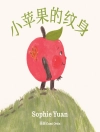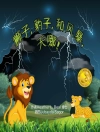Since its inception in 1894, ‘The Jungle Book’ has enchanted readers—both young and old—with its invaluable moral lessons. By bestowing the animals in the stories with human traits, famed writer Rudyard Kipling gives readers timeless parables that teach family values and the importance of community.
The most popular of these tales center on Mowgli, a young boy who lives in the jungle amongst a community of animals. All before reaching his teenage years, he is brought up by wolves, trained by a bear, kidnapped by monkeys, and much more. This collection also features other classic stories, most notably ‘Rikki Tikki Tavi’, a story of a young mongoose named ‘Rikki’ who serves as a protector from dangerous cobras for a British family residing in India. In this masterful tale, the young mongoose is forced into a ferocious battle with Nagin, a large venomous cobra threatening Rikki’s family and seeking revenge for the death of her counterpart, Nag. These stories, with their vibrant characters and important moral lessons, have stood the test of time, having been reprinted in hundreds of different versions and languages around the world.
Still amazingly contemporary even though it was written more than 100 years ago, the pacing, language, and characters will keep readers young and old turning the pages, and then begging for more.
ABOUT THE AUTHOR:
Rudyard Kipling (1865-1936) was born in Bombay, but educated in England at the United Services College, Westward Ho, Bideford. In 1882 he returned to India, where he worked for Anglo-Indian newspapers.
His literary career began with Departmental Ditties (1886), but subsequently he became chiefly known as a writer of short stories. A prolific writer, he achieved fame quickly. Kipling was the poet of the British Empire and its yeoman, the common soldier, whom he glorified in many of his works, in particular Plain Tales from the Hills (1888) and Soldiers Three (1888), collections of short stories with roughly and affectionately drawn soldier portraits. His Barrack Room Ballads (1892) were written for, as much as about, the common soldier. In 1894 appeared his Jungle Book, which became a children’s classic all over the world. Kim (1901), the story of Kimball O’Hara and his adventures in the Himalayas, is perhaps his most felicitous work. Other works include The Second Jungle Book (1895), The Seven Seas (1896), Captains Courageous (1897), The Day’s Work (1898), Stalky and Co. (1899), Just So Stories (1902), Trafficks and Discoveries (1904), Puck of Pook’s Hill (1906), Actions and Reactions (1909), Debits and Credits (1926), Thy Servant a Dog (1930), and Limits and Renewals (1932). During the First World War Kipling wrote some propaganda books. His collected poems appeared in 1933.
Kipling was the recipient of many honorary degrees and other awards. In 1926 he received the Gold Medal of the Royal Society of Literature, which only Scott, Meredith, and Hardy had been awarded before him.
Rudyard Kipling died on January 18, 1936.












